The Geopolitics of Uranium: Nuclear Energy and the Protection of Human Rights
In this article, titled "The Geopolitics of Uranium: Nuclear Energy and the Protection of Human Rights," we offer an in-depth analysis of the interrelationship between nuclear energy and fundamental rights at the global level. How does this dynamic impact communities and human rights defenders in different parts of the world? Join us for this exploration and discover revealing insights.
Introduction
Uranium, a non-renewable natural resource, is essential in current geopolitics, as it is the primary raw material for nuclear energy production. Countries that possess and control large uranium reserves gain a strategic advantage in the international energy and political arena. The unequal distribution of this resource has generated intense competition and conflicts for its control.
Uranium exploitation and trade not only have economic implications but are also intrinsically linked to political, military, and national security issues. Agreements on the supply and enrichment of uranium are highly relevant issues in international relations, making uranium a key player in shaping global geopolitics.
This geopolitical context linked to uranium directly affects countries' ability to guarantee the fundamental rights of their citizens, as dependence on nuclear energy and the struggle for control of this resource can have significant repercussions on human rights globally.
The use of nuclear energy, and therefore uranium, poses significant human rights challenges. Although nuclear energy can be a clean and efficient source of energy, it also carries significant risks to the health, environment, and safety of the communities where it is developed. Nuclear disasters such as Chernobyl and Fukushima have highlighted the devastating consequences that can affect people's lives and fundamental rights.
Furthermore, nuclear waste management and the proliferation of nuclear weapons present ethical and security dilemmas that threaten the well-being of present and future generations. The connection between nuclear energy, uranium, and human rights is a matter of great importance that requires thorough analysis to understand its global impact.
It is essential to consider the right to a healthy environment, the right to health, the right to information, and the right to citizen participation in decisions affecting the development and implementation of nuclear projects. Ensuring these rights is crucial to ensuring that the development and use of nuclear energy is carried out in a manner that is safe, responsible, and respectful of human dignity.
History is marked by conflicts and tensions arising from the control of uranium and its role in the development of nuclear weapons. The arms race during the Cold War, as well as regional conflicts in the Middle East and Africa, have been closely linked to the struggle for control of uranium reserves and the ambition to obtain nuclear technology for military purposes.
These conflicts have had a direct impact on the security and stability of the affected regions, as well as the violation of the human rights of local populations. Uranium mining and trade in conflict zones have fueled violence, corruption, and the exploitation of vulnerable communities, highlighting the complex interrelationship between uranium, geopolitics, and human rights globally.
Examining the background to and repercussions of conflicts over uranium control is essential to a comprehensive understanding of the impact this resource has had on shaping global geopolitics and the protection of people's fundamental rights.
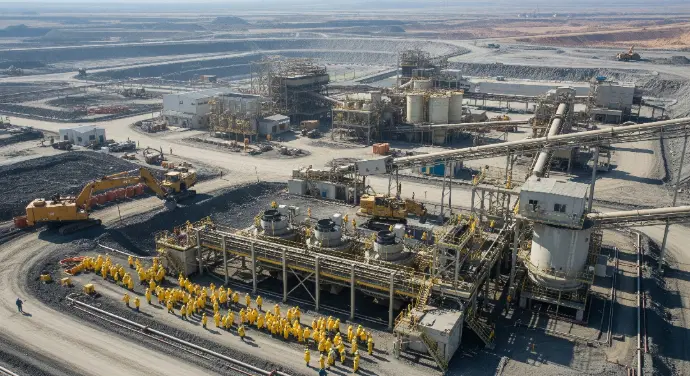
Uranium as a Strategic Resource
Uranium is an essential chemical element in the production of nuclear energy, and is used in a variety of applications, including electricity generation and nuclear submarine propulsion. Globally, the largest uranium producers are Kazakhstan, Canada, and Australia, which have significant reserves of this resource. Uranium production has remained constant in recent years, averaging approximately 50,000 metric tons annually.
Regarding uranium reserves, the nations with the largest amounts of this resource are Australia, Kazakhstan, and Canada, together accumulating nearly 60% of the known global reserves. These reserves are crucial for the energy security of countries that depend on nuclear energy.
Uranium is considered a strategic resource that plays a fundamental role in the advancement of nuclear energy worldwide, positioning it as a key factor in energy geopolitics and in the promotion of fundamental rights.
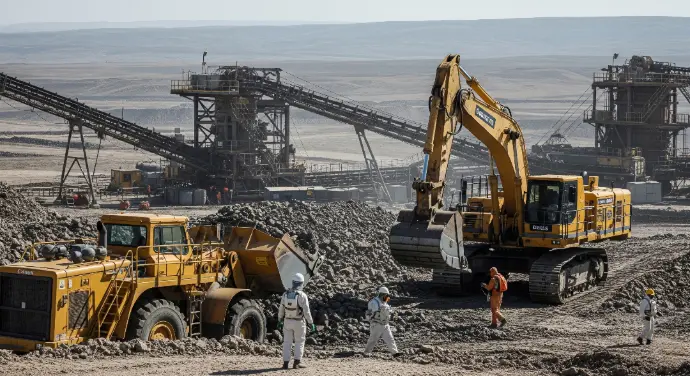
The need for uranium is closely linked to the operation of nuclear power facilities. As more and more nations seek to reduce their carbon emissions and diversify their energy sources, nuclear energy has gained importance as a low-carbon and highly efficient option. Currently, there are approximately 440 nuclear reactors in operation worldwide, with more than 50 under construction, generating a persistent demand for uranium.
The annual demand for uranium for nuclear plants is projected to be approximately 65,000 metric tons, underscoring the strategic importance of this resource in the field of nuclear energy. The connection between uranium demand and nuclear energy is a key aspect in the geopolitics of uranium and the need to ensure a stable supply for nuclear facilities worldwide.
Despite the controversies surrounding its use, nuclear energy has established itself as a fundamental energy source for numerous nations, sparking growing competition for access to uranium and encouraging the exploration and exploitation of new deposits in various regions of the planet.
Geopolitical factors related to uranium are of great relevance, as this mineral is crucial for the production of nuclear energy, which has a direct impact on the energy security and economies of several countries. Countries with a high dependence on nuclear energy, such as France, China, Russia, and the United States, have forged strategic alliances with nations that produce or possess uranium reserves, in order to ensure a continued long-term supply.
Furthermore, the rivalry for dominance over uranium reserves and its impact on global energy policy has led to geopolitical tensions, particularly in areas with significant deposits. This dynamic has resulted in an environment where nations with uranium reserves seek to increase their influence in the global market, while consumer nations attempt to diversify their supply sources and reduce their dependence on a single supplier.
Within this framework, uranium becomes a strategic resource that not only affects energy geopolitics but also has repercussions for international relations and the desire to ensure equitable access to energy for populations. The interrelationship between geopolitical interests and energy security presents significant challenges for the defense of human rights in a context marked by competition for control of natural resources essential for nuclear energy.
Uranium mining can have considerable impacts on the local communities where it takes place. Uranium mining operations often require large volumes of water, which can impact the availability of this vital resource for surrounding communities. Likewise, emissions of dust and toxic gases during uranium mining and processing can contaminate the air and soil, endangering the health of individuals living near mining areas.
In addition to environmental risks, uranium mining can also have social consequences for local communities. The arrival of mines can lead to increased migration to the region, which could generate social and cultural tensions and overwhelm available infrastructure and services. Similarly, mining activity can alter the economic and traditional dynamics of these communities, leading to forced displacement and conflicts related to land and resources.
It is essential to conduct a detailed study of the social and environmental impacts of uranium mining on the surrounding communities, in addition to ensuring the involvement and dialogue with residents in decisions that influence their lives and their environments. Safeguarding the basic rights of these populations, such as water supply, health, and a healthy environment, must be a primary consideration in all uranium-related mining activities.
Conflicts over Uranium Control
The history of uranium mining has been characterized by geopolitical disputes and tensions. One of the most notable examples is the Democratic Republic of the Congo, where the abundance of uranium has influenced internal conflicts and power struggles. During the Cold War, the competition for uranium control was a crucial aspect of the rivalry between the United States and the Soviet Union, leading to indirect conflicts in several uranium-rich regions.
Furthermore, uranium mining has been associated with environmental and social repercussions, resulting in the displacement of local communities, pollution, and loss of natural resources as a result of uranium extraction.
These conflicts have generated a legacy of territorial disputes, forced displacement, and human rights violations in the areas where uranium is found, highlighting the close connection between the exploitation of this resource and armed conflicts.
The geopolitics of uranium has profound repercussions for human rights worldwide. Nations with significant uranium reserves exert significant influence in the international arena, which can lead to power imbalances and geopolitical conflicts that directly impact civilians.
Additionally, uranium mining has been linked to labor and environmental rights violations, exposing workers to dangerous and harmful conditions and causing devastating effects on the environment and the health of surrounding communities. The absence of effective regulations has allowed companies to ignore human rights standards in uranium mining, resulting in serious consequences for local communities.
In this context, the geopolitics of uranium not only has strategic and security implications, but also significantly affects the fundamental rights of those residing in mining areas and around the world.
International regulations related to uranium mining are crucial for conflict prevention and the protection of human rights. However, the lack of a robust regulatory framework has allowed companies and states to seek excessive control over this resource, giving rise to global tensions and disputes.
The competition for uranium dominance has sparked tensions between nations and intensified existing conflicts, jeopardizing stability and security in multiple areas. The lack of effective mechanisms to regulate uranium mining and trade has allowed geopolitical interests to take precedence over human rights, highlighting the urgency of adopting a more comprehensive and fair approach to this vital resource.
In this context, it is essential to establish more rigorous international standards to ensure that uranium mining respects human rights, protects the environment, and promotes the sustainable development of the communities involved. A multilateral and cooperative approach is necessary to adequately address the geopolitics of uranium and its impact on human rights worldwide.
Uranium mining presents a series of ethical and moral issues, particularly those related to human rights and environmental protection. Often, uranium mining occurs in territories inhabited by indigenous communities, whose rights to self-determination and a healthy environment are compromised by mining activities. The lack of prior and informed consultation with these communities and the risk of contamination of their lands and water resources generate disputes that question the ethics of uranium mining.
Furthermore, at the global level, the production and trade of uranium raises moral issues linked to the proliferation of nuclear weapons and the potential for nuclear accidents. Uranium mining fuels a cycle that can culminate in the manufacture of nuclear weapons, which, in turn, threatens international stability and peace. Furthermore, the management of nuclear waste and the protection of communities near nuclear facilities pose ethical challenges that must be addressed with integrity and responsibility.
It is essential that governments, businesses, and society as a whole consider these ethical and moral considerations when addressing uranium exploitation, seeking solutions that safeguard the fundamental rights of vulnerable communities and promote responsible use of this energy source.
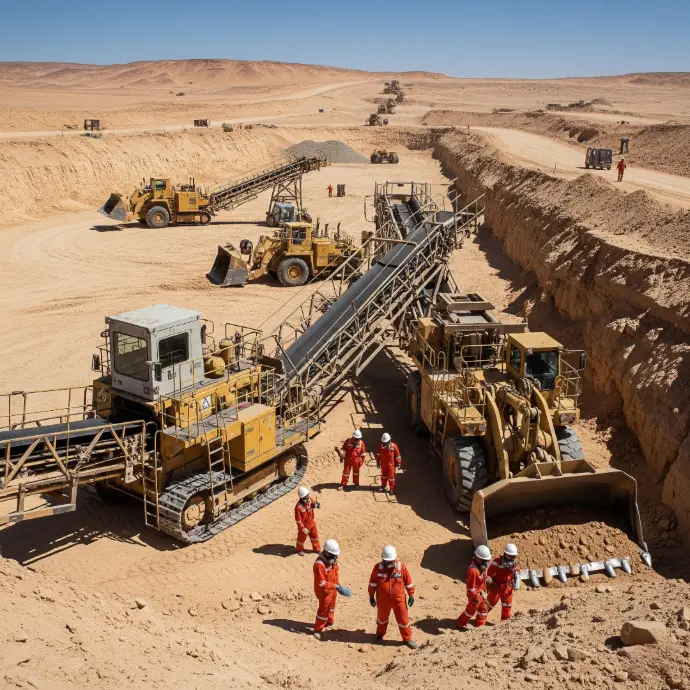
Uranium Geopolitics and Its Impact on Human Rights
The connection between uranium mining and human rights violations is a matter of great importance today. Uranium mining, which is used as fuel in nuclear reactors, has been associated with adverse effects on local communities and the environment. In numerous cases, the exploitation of this mineral has led to water, soil, and air pollution, harming the health and quality of life of people living near mines.
Furthermore, uranium mining has been linked to social conflicts due to the appropriation of land, the displacement of indigenous communities, and the lack of prior consultation with affected people. These circumstances have generated tensions and human rights violations, especially in developing nations where regulations and monitoring of the mining industry may be inadequate. It is vital to conduct a thorough analysis of the human rights impact of uranium mining, with the aim of promoting actions that safeguard local communities and the environment.
Uranium, being essential for nuclear energy generation, has acquired a significant role in global geopolitics. Countries with significant uranium reserves or superior uranium processing capabilities exert strategic influence globally. This dynamic has led to geopolitical rivalries and tensions, as well as the proliferation of nuclear weapons in certain contexts.
The competition for control of uranium resources has intensified tensions between nations, provoking conflicts that threaten international stability and security. The relationship between uranium, nuclear energy, and global security poses significant challenges that require a meticulous approach and coordinated action at the international level.
The impact of uranium as a geopolitical weapon is a crucial aspect to consider when examining its relationship with human rights, as conflicts generated by its control can have devastating results for civilian populations and for the respect of their fundamental rights.
In response to the challenges posed by the geopolitical exploitation and use of uranium, movements and actions in defense of human rights have emerged at the local, national, and international levels. Civil society organizations, human rights defenders, and affected communities have raised their voices to demand the protection of their rights in the face of the negative effects of uranium.
These initiatives include the implementation of stricter regulations to control uranium extraction and processing, the requirement for prior and informed consultations with affected communities, and the exploration of viable energy options that reduce dependence on nuclear energy. Similarly, awareness-raising and denunciation campaigns have been developed regarding human rights violations related to the geopolitical policy of uranium.
It is essential to support and make visible these actions in support of human rights, as well as to foster an inclusive dialogue that addresses the challenges posed by the geopolitical exploitation and use of uranium from the perspective of human rights and social justice.
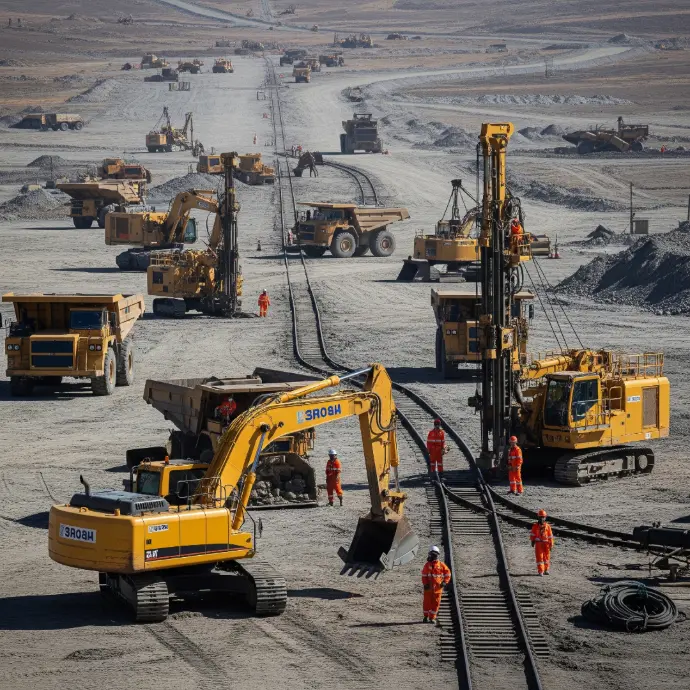
Conclusions
The connection between uranium-related geopolitics and human rights poses several challenges that demand urgent consideration and action. Uranium exploitation for nuclear power generation and other purposes poses considerable risks to the fundamental rights of local communities and to global stability. Addressing these challenges comprehensively and sustainably is essential to ensure a future in which both energy security and human rights are safeguarded.
Uranium mining and commercialization will continue to be a matter of great importance within the framework of global geopolitics. Governments, international entities, and companies in the sector must assume responsibility for addressing current and future challenges proactively and efficiently. It is essential to assess the impact of these actions on human rights and take concrete measures to reduce any adverse effects.
The balance between energy security, uranium geopolitics, and respect for human rights represents a complex challenge that requires a multidimensional approach. Decisions and policies related to uranium extraction, trade, and use need to consider not only economic and strategic factors, but also social, environmental, and human rights impacts. Only through a holistic approach can a sustainable and fair future be ensured for all stakeholders.
The role of uranium in global geopolitics and its connection to human rights is an issue that, now more than ever, deserves our attention. This mineral, essential for nuclear energy and the energy strategies of various countries, not only defines the course of international policies but also has direct implications for the lives of millions of people.
It is essential that we take a moment to evaluate how our decisions, both individual and collective, impact this complex network. The impact transcends borders: from local communities affected by uranium mining to global tensions over its control and trade. All of this is intrinsically linked to the respect—or violation—of fundamental rights.
The solution is not simple, but it begins with a firm commitment to the responsible management of these resources. This means demanding greater transparency in their extraction and use, as well as fostering a global dialogue that prioritizes human dignity over strategic or economic interests. Advocating for a balance between energy needs and respect for human rights could make a difference in a world where ethics must prevail over politics.
As citizens of the world, we cannot ignore these implications. It is time to assume our role on this global stage and work toward a more just future, where every decision regarding uranium is grounded in respect for human life and the environment.
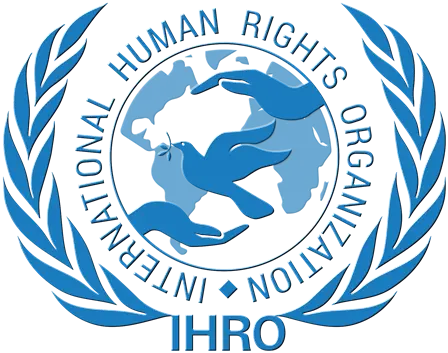

 IHRO NEWS
IHRO NEWS